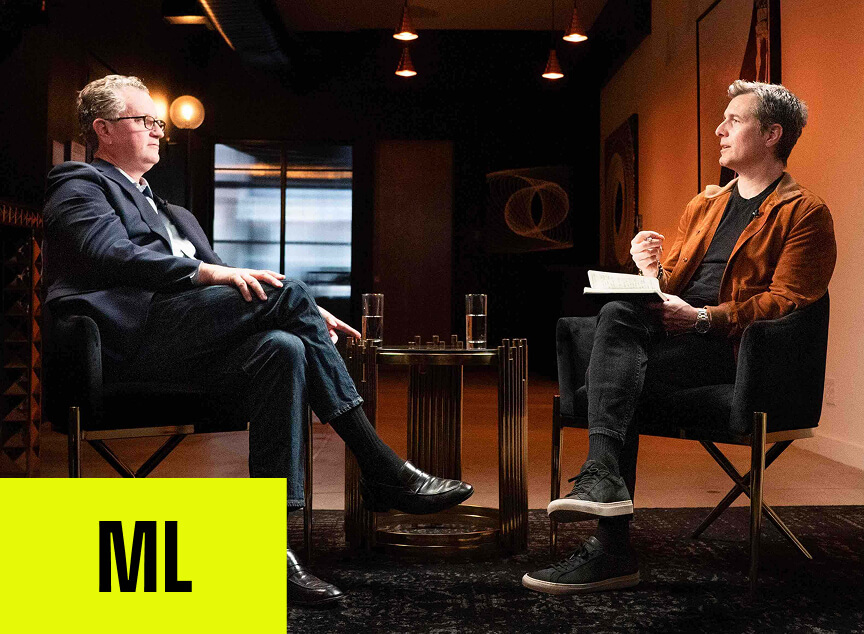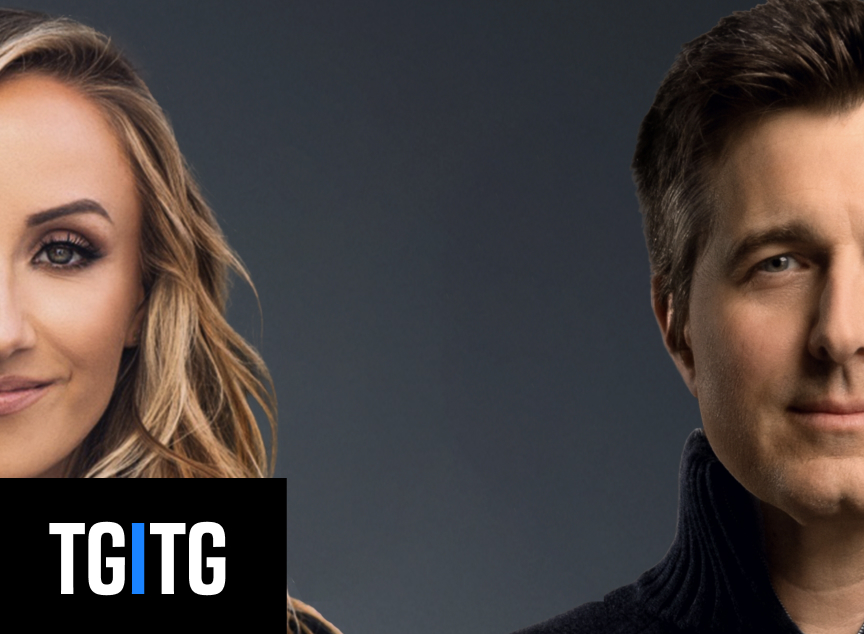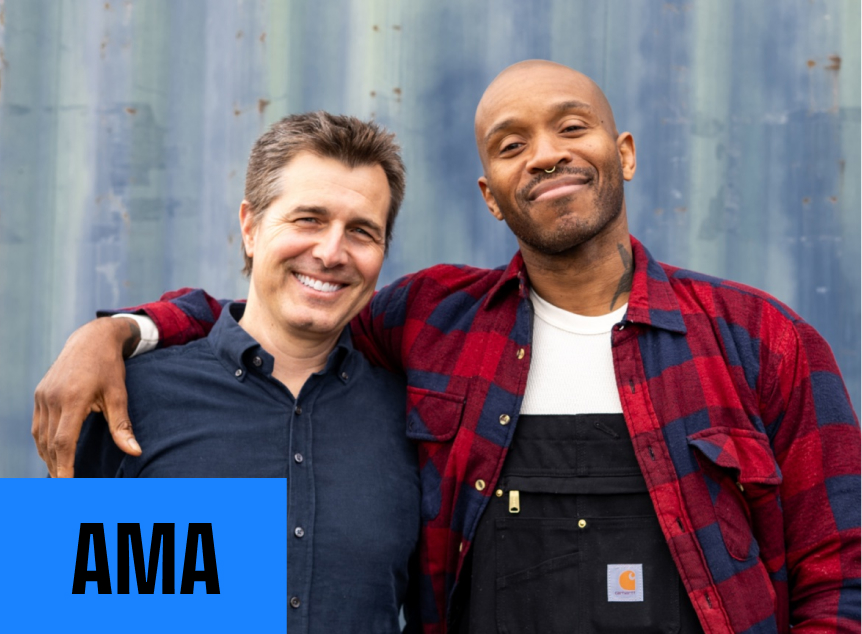For this episode, we are excited to share the 9th installment of our Ask Me Anything series.
The purpose behind these conversations – behind these AMAs – is to hear from you… to explore the topics and questions that you have been wrestling with on your path to becoming.
The goal is to expand on the themes, lessons, and best-practices we’ve discussed on the Finding Mastery podcast in order to make them even more applicable to your own life.
This time around, our co-host O’Neil Cespedes and I cover some really interesting and insightful territory – we discuss:
- What makes a psychologically healthy human
- How to engage in open, curious conversations in a polarized world
- Whether it’s better to be a generalist or a specialist
- Keys to parenting in modern times
- A best practice you can try out called “The Miracle Question”
- And so much more
Enjoy Volume 9 of Finding Mastery’s Ask Me Anything!
“What if you could bring passion into every environment that you’re in? That is possible. Living with passion is a psychological skill. It’s not a dependency.”
In This Episode:
A love affair with learning
It could be problematic if a person only knows one thing and cares nothing about anything else, they only know one thing and then they’re limited in every other part of their life. That would be a problem. But if you think about it and frame it mastery of craft, like you are great at one thing, but you frame it as a love affair of trying to uncover or unlock or understand or make sense of something that’s very complicated and you’re diving into that with a love affair, what you end up doing is just in a relationship with my wife is the deeper I go, the more I learn. It’s not the longer we go together, the less I learn. I keep learning more about me, about her, and then about humans, about relationships with the planet even through the relationship that we have with each other. So the love affair, what ends up taking place is as a mystery, there’s an unfolding.
Going all in
I don’t think you can really understand the depth of the human experience without going all in. And so mastery of craft is really about mastery of self, and mastery of self for me is much about being in a harmonious relationship, embracing all the discord that comes with getting to harmony, a harmonious relationship with, and that’s with self, others, the planet, and now possibly machines.
It starts with you
It begins with yourself – to first have a deep sense of love for yourself, a permission to be imperfect, a acceptance of who you are at this moment and the tension about who you’re working to become and having a love affair between those ideas. And so it starts with the way that you care for yourself. And then when you get that thing aligned with the activity or the craft that you’re most interested in, now there’s a different dimension to this love affair. So I want to make sure that that’s clear. It starts with yourself and then moves externally outward.
The passion trap
I do think that we’ve got the cart before the horse here, with the idea being, “If I could just find the thing that I was passionate about. If I could just find that one thing, I’d be okay.” And they look to people like you or somebody and they’re like, man, he’s living as passion, I just wish I could find mine. I think we got to flip that thing around. It’s knowing how to live with passion in everything you do. So think about how dangerous it is if you can only find that buoyancy and that excitement in the one thing or two things that you do, that you need to have that thing to be alive. That’s a very dangerous way to go through life. It’s limiting. But what if you could bring passion into every environment that you’re in? That is possible. Living with passion is a psychological skill. It’s not a dependency.
Setting a vision
Use your imagination to imagine a compelling future, to imagine what you or others or a community could become. So doing the internal work to have clarity of vision and to use this powerful mechanism of your mind and imagination to see the future that you want to work toward, that’s a really important piece to it. I’m not suggesting that that vision is about having a bigger watch, bigger car, bigger whatever, I’m talking about a vision that is so compelling where people are flourishing, where people are better.
The Miracle Question
In psychology, the miracle question is basically asking that same question. If a miracle happened tonight and everything that you’re hoping for would be different in the morning, it would happen, it would take place, what is the miracle? And so just getting people to entertain what the beautiful life would be tomorrow morning when you woke up if a miracle happened overnight is a grounded question in a well-researched psychological intervention.
The invisible audience (O’Neil)
Obviously when I’m up in the morning, there’s no audience there, there’s no people whose judgment I fear there. But internally, there is. There might as well be an invisible audience in my home watching me because I’ve been reared that way for so long. This is going to sound probably kind of crazy, but I’ll find myself doing things that are organic and natural and that I consider my alpha, inner alpha considers soft. And as soon as I do that, I’ll imagine there’s a group of people watching me, and I’ll revert back to what the alpha should do, as if there was literally a group of people watching me like, this is corny, I shouldn’t be doing this when there’s no one there watching me. It’s a pattern that is really difficult for me to get out of.
FOPO
The greatest constrictor of people’s potential is the attending to what “they” might think and then adjusting according to what they might be thinking. “They” represent the model that we grew up thinking is the right model. And that was likely introduced by mom and dad or the neighborhood or the region or the heroes that we thought about. They installed that operating system early and then we put it on to them, whoever the colloquial “them” is. But it’s really this pervasive fear of what they might think that keeps us from actually stepping who we want to be.
Keep an eye out for this…
I just submitted a manuscript to Harvard Business Review to publish my book that’s coming out November 7th. The title is The First Rule of Mastery, but the subtitle is, Stop Worrying about What People Think of You. So I just did a multi-year deep dive into exactly what we’re talking about and so I’m kind of lighting up inside that you’re being honest and going there. And the second is, you’re right on the pulse of what I think that we’re so fatigued by that we’re ready to let go of this. As a community, I think we have to let go of this.
Growth takes risk
That tension of what are they going to think and let me adjust, and that hypersensitivity, that high social eq, that ability to navigate got you really good in a lot of ways in life. And so at some point you’ll say, I’m tired of swinging on that vine because there’s a new vine that I can see. When am I going to recognize that I’m losing momentum on this vine? It’s not going to get me to the place I want to go, but I’m going to get one little kind of swing because I can still get that vine over there, and that vine is the sense of content and peace.



